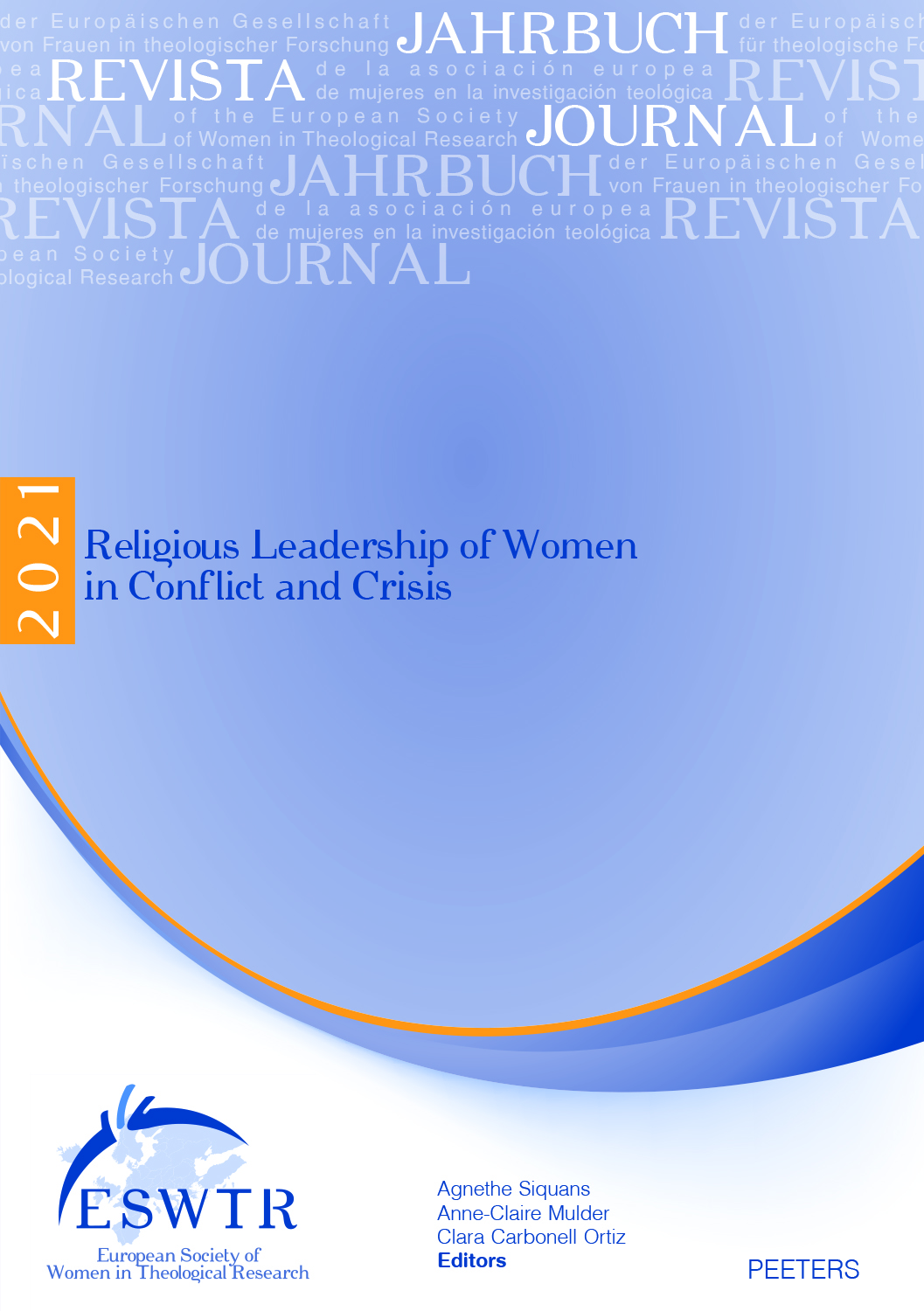 previous article in this issue previous article in this issue | next article in this issue  |

|
Document Details : Title: Zur semiotisch-kulturellen Betrachtung mystischer Texte aus gendersensibler Perspektive Author(s): HROTKÓ, Larissza Journal: Journal of the European Society of Women in Theological Research Volume: 23 Date: 2015 Pages: 39-51 DOI: 10.2143/ESWTR.23.0.3103630 Abstract : Die mystische Lyrik kann neue Blickwinkel in der Auslegung biblischer Texte eröffnen. Diese Idee entwickelt der vorliegende Text am Beispiel der leidenschaftlichen Werke der russischen Dichterin Marina Zwetajewa. Über das erste Buch Samuel hinaus werden hier einige Stellen aus dem Buch der Richter diskutiert. Dabei wird auch die Prophetin und Richterin Dvora als leidenschaftliche Mystikerin dargestellt, die als Beispiel im Kampf für Gerechtigkeit und Gleichberechtigung für die Frauen des feministischen jüdischen Netzwerkes Bet-Debora dient. Für die Beschreibung mystischer Texte wird in dieser genderorientierten Arbeit die semiotisch-kulturelle Methode eingesetzt. Als mystische Texte werden die jüdischen Frauengebete (tekhines) kurz erwähnt, darunter auch die meditativen Gebete von Bertha Pappenheim, Begründerin des Jüdischen Frauenbundes Österreichs. Mystic poetry can open new aspects in the interpretation of texts from the Scriptures. This paper is going to unfold this idea drawing on the Russian poet Marina Zvetajeva’s passionate works. In addition to 1Samuel, some excerpts from Judges are also discussed. Deborah, prophet and judge of Israel alike, also appears in this book as a passionate mystic. Deborah has become a role-model for the Jewish feminist network Bet-Debora in its fight for justice and equality. For the analysis of these mystical texts, this gender-sensitive paper applies the semiotic-cultural method. The paper also discusses women’s prayers (tekhines) as mystic texts, such as the meditation prayers of the founder of the League of Jewish Women, Bertha Pappenheim. La lírica mística puede abrir nuevas perspectivas en la interpretación de Biblia. El texto actual desarrolla este concepto y pone de ejemplo las obras poéticas apasionadas de poetisa rusa Marina Cvetaeva. Después de analizar algunos pasos del primero libro Samuelos, el texto trata sobre profetisa y juez de Israel Devora del libro Judicum, quien también era una mística apasionada. Hoy ella puede servir de ejemplo en la lucha por la justicia e igualdad de derechos para mujeres unidas en la Casa de Devora, la red feminista judía. El presente trabajo está escrito bajo aspecto de Gender y utiliza el método semiótico-cultural para describir los textos místicos. Algunos rezos de judías son también mencionados como textos místicos, entre ellos son rezos meditativos y rezos de fundadora de asociación de judías austríacas Bertha Pappenheim. |
 |
